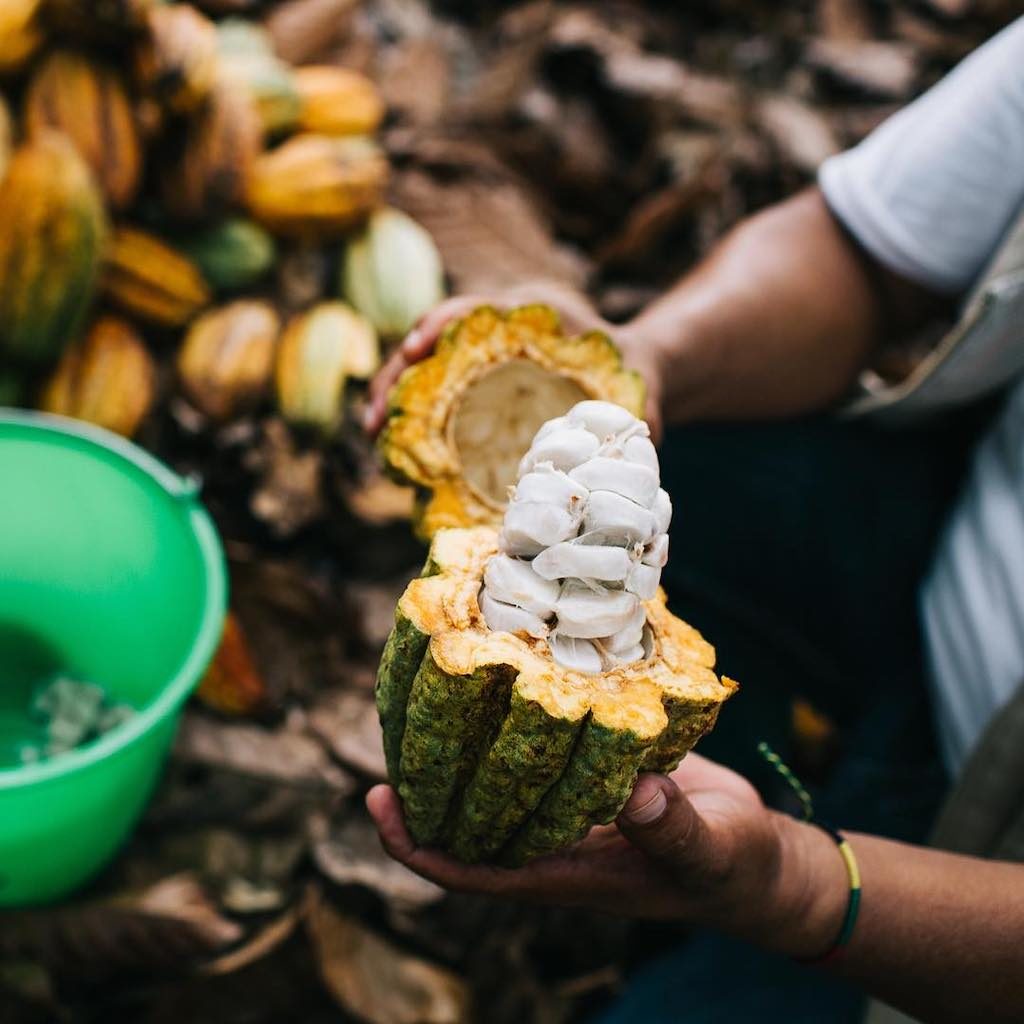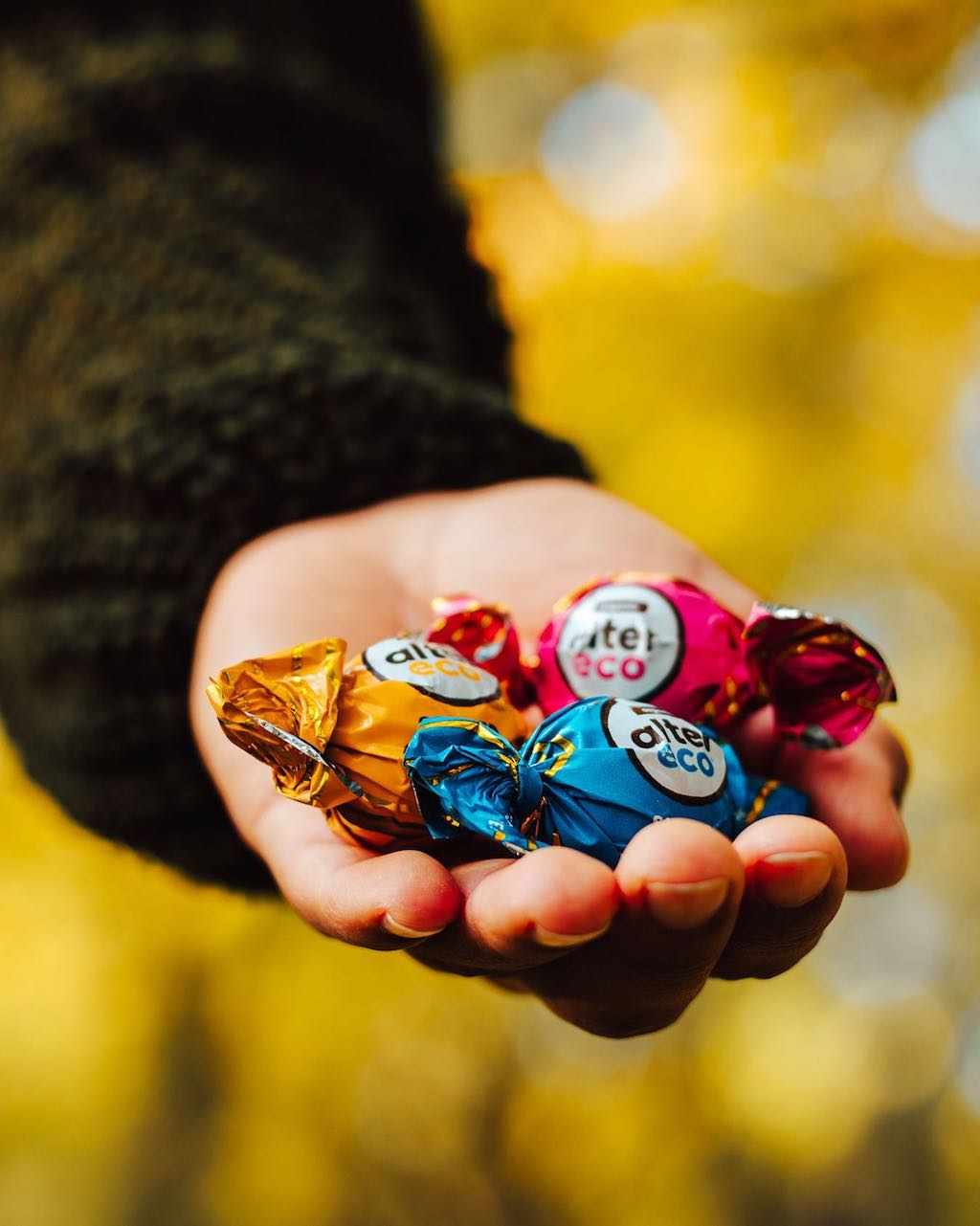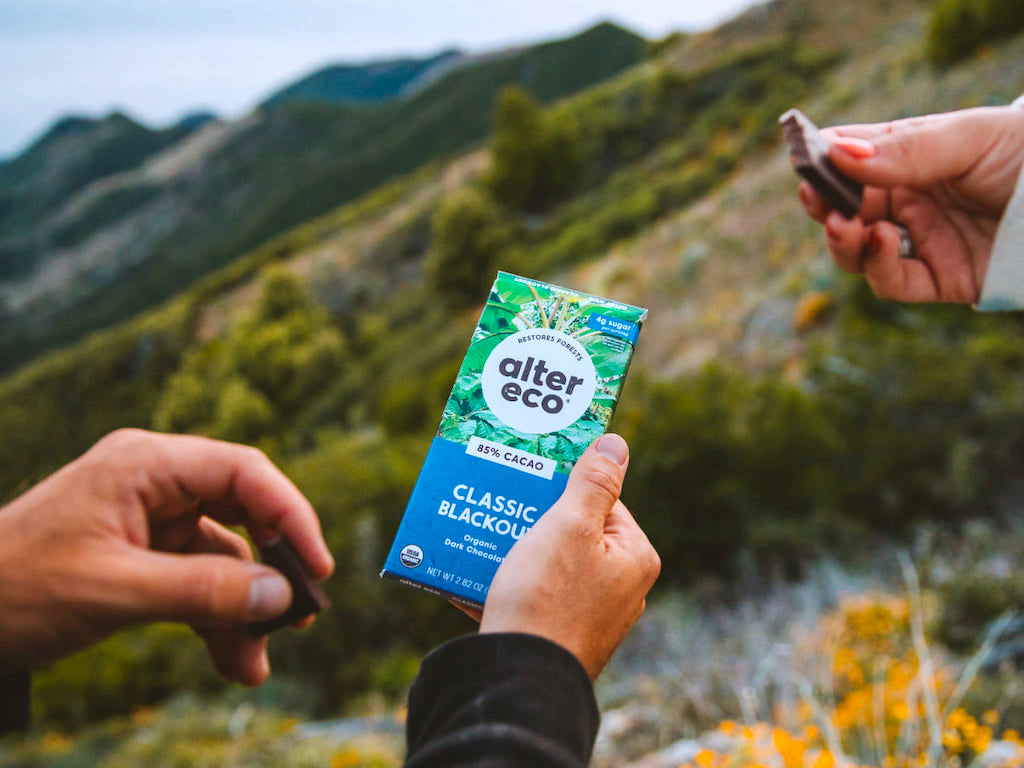4 Mins Read
Responsible chocolate brand Alter Eco is taking the lead in radical transparency, releasing its annual sustainability report to document its environmental and human impact – both good and bad. Being “brutally honest” about failing to achieve its initial goal of 100% compostable and recyclable packaging in 2020, the company committed to continue to improve until its “entire supply chain is zero-landfill”.
Alter Eco has released its yearly sustainability report to highlight its achievements as well as its setbacks in terms of its impact, demonstrating its leadership as a value-led business by practicing radical transparency – something the brand will likely score points for from conscious consumers, especially the increasingly influential group of young Gen Z shoppers.
“We believe you must ‘Check Your Eco’. In other words, accountability is key,” said Antoine Ambert, director of the Alter Eco Foundation, which launched back in October 2020 as the firm’s charitable arm that promotes dynamic agroforestry as part of its drive to help farmers across the cocoa industry shift towards regenerative agriculture.
“This report serves that purpose for us. But it’s not just a report, it’s a compilation of small actions that we take every day, from finding better ways to grow cocoa to reduce our carbon footprint, to holding ourselves accountable for Justice-Equity-Diversity-Inclusion in our daily interactions as a team.”
In terms of the company’s successes, the report said that it managed to help 400 Alter Eco cacao farmer co-ops based in Ecuador to use agroforestry practices, which involves growing a diverse set of crops that helps protect farmers from natural disasters, while also reducing the amount of water, fertiliser, pest management and labour needed.

We believe you must ‘Check Your Eco’. In other words, accountability is key.
Antoine Ambert, Director, The Alter Eco Foundation
By the next five years, Alter Eco says that 1,000 more cacao co-ops will be added to their growing base of agroforestry farms, translating to roughly 1,650 acres of land. Each acre of converted land leads to an extra 138 metric tons of sequestered carbon – equivalent to the greenhouse gas emissions of 30 passenger vehicles for a whole year.
But Alter Eco says they don’t want their impact to end there, setting an ambitious new target of pushing the same dynamic agroforestry model to the entire cacao industry with its lead-by-example strategy. By doing so, the brand says that a whopping 2.5 gigatons of carbon dioxide could be sequestered.
“That’s equivalent to 27 million cars off the road every year for 20 years,” said the report.
While highlighting its achievements, Alter Eco was clear that the report isn’t all self-praise, noting in a “brutally honest” tone that it failed to reach their goal of switching all its packaging to 100% compostable and recyclable materials by the end of 2020 and admitting that “figuring out how to make packaging recyclable and compostable was harder than we anticipated”.
Now, the company is recommitting to its target and says they’ll strive to do four things in 2021 to make all its packaging compostable and recyclable – and that they “won’t stop until our entire supply chain is zero-landfill”.

Figuring out how to make packaging recyclable and compostable was harder than we anticipated.
Alter Eco
These four steps include removing shrink wrap from outside of its bulk truffle boxes during shipping, changing its truffle wrappers from industrial compostable to backyard compostable – meaning that customers can now compost them in their garden or home – and replacing all landfill stickers with compostable or recyclable ones in their smaller truffle packages.
It’ll also switch back its quinoa bags from landfill to compostable, which was using landfill packaging for a period of time during 2020 due to Covid-19 supply chain issues.
In terms of its human impact, Alter Eco says that it’ll continue to work with its small scale farmers who are paid fair trade prices. To prove their dedication, the company, yet again demonstrating its radical transparency, has laid out the numbers.
To be exact, Alter Eco pays 30% above existing fair trade prices that the average cocoa farmer receives, amounting to a total US$168,000 premium.
“In addition to simply paying a premium, we help farmers develop long-term solutions,” said the report.
“One of the goals of The Alter Eco Foundation is to address the income and quality of life disparity we often find with small-scale farmers, struggling to make a living and feed their families from the revenues of one main crop, even under fair trade programs. Dynamic agroforestry models require that farmers plant and tend to a variety of plants, not just cacao.”
All images courtesy of Alter Eco.




